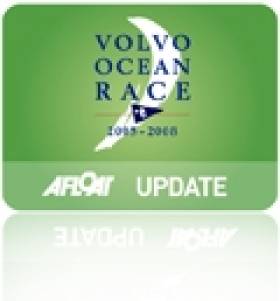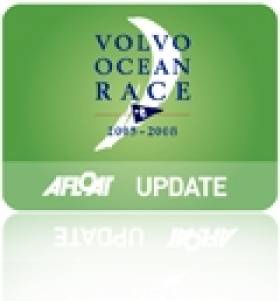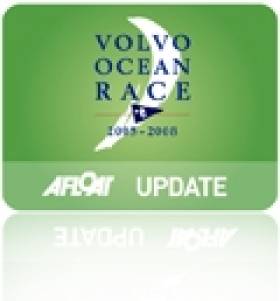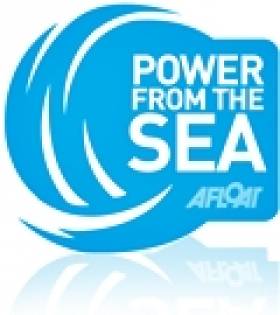Displaying items by tag: Sweden
Tributes Paid to Swedish Yachting Legend Magnus Olsson
#VOR - The sailing world has paid tribute to Volvo Ocean Race coach and round-the-world yachting legend Magnus Olsson, who has passed away from a stroke at the age of 64.
Olsson was a long-time veteran of the Volvo Ocean Race (VOR), beginning in 1985 when it was known as the Whitbread Round The World Race and last competing in the 2008-09 edition.
Most recently he was coaching the all-women Team SCA in their preparations for the 12th edition of the race starting this summer.
"It's with great sadness I received the news about Magnus passing away," said VOR chief Knut Frostad. "He was my mentor when I sailed around the world with him 20 years ago.
"He was the inspiration for me and for so many more and more than anything he was the smile of the race," he continued. "A true friend has left on his final leg and the sailing world will never be the same without Magnus and his smile. Never. My thoughts are with his two sons and his close family today."
Olsson - known to friends as 'Mange' - was born on 4 January 1949 and grew up near Stockholm. He began sailing on Lake Mälaren aged eight and learned his trade in OK Dinghy, Trapez and 505s, winning three Swedish national titles in the latter.
Before beginning his round-the-world career he also served as crew on Sverige in the 1976 America's Cup.
The Volvo Ocean Race website has further tributes from world sailing luminaries HERE.
Newport Makes It Six For VOR 2014-15 Host Ports
#VOR - Newport in Rhode Island has been announced as the latest stopover for the next edition of the Volvo Ocean Race in 2014-15.
The popular sailing base in the 'Ocean State' will be the North American port on the race route for its 12th running as the end point of the leg from Itajaí in Brazil, and is hosting the event for the first time.
"It's about time the race came to the city of Newport and we are looking forward to a real festival that will delight and inspire sailing fans and those who are new to the sport," said Volvo Ocean Race CEO Knut Frostad at the announcement.
Conveniently located between the Irish-American hotspots of New York City and Boston, the crowds in attendance are sure to feature a prominent 'green' element.
As reported at the weekend on Afloat.ie, Gothenburg in Sweden has been awarded the honour of hosting the VOR finale, much to the disappointment of Galwegians after last summer's successful event.
Volvo Ocean Race Finale Honours Go To Gothenburg For 2015
#VOR - Despite hopes within Galway after last summer's successful conclusion to the Volvo Ocean Race, it's been announced that the next edition of the round-the-world yachting challenge will have its finish line in Sweden.
Gothenburg was chosen last week as the final stop for the 12th running of the Volvo Ocean Race in 2014-15. It will be the second time the city - also the headquarters of the title sponsor - has hosted the race after the 2005-06 running.
"Gothenburg is the perfect place to finish a global event of this stature," said Volvo Ocean Race CEO Knut Frostad. "It's great to know that after sailing tens of thousands of miles around the world we'll be coming to a host port with all the facilities and knowhow to make this a great event, and the history to make it feel like a real homecoming."
The deal announced on Friday also secures Gothenburg's place on the race route for the 13th edition of the race.
It is the fifth of the hosts port announced so far, after the race start at Alicante in Spain, two stopovers in Brazil and a return visit to Auckland in New Zealand.
According to Galway Bay FM, the City of the Tribes is still in the running among 100 host cities that have registered an interest to host the VOR on its next sail around the world.
This is despite claims that last summer's finale organiser Let's Do It Global could be faced with liquidation due to failure to meet its outstanding debts from the event, said to amount to almost half a million euro.
As previously reported on Afloat.ie, Dun Laoghaire may consider its own tender to host the race to cash in on the success of the event for local business and tourism in Galway last year.
'Underwater Kite' a Clean Energy Solution
An 'underwater kite' developed by a Swedish company could be a simple answer to harnessing the power of the sea, The Local reports.
The Deep Green device looks like a toy kite with a turbine attached. But when tethered to the seabed and carried by the ocean currents, it can harness energy at a much more efficient rate - 800 times greater - than surface-based turbines.
Minesto, the company behind the project, claims it can generate 500 kilowatts of power even in calm conditions.
A scale model of the Deep Green system, which was included in Time Magazine's 50 Best Inventions of 2010, will be unveiled later this year off the coast of Northern Ireland.
It will provide an opportunity for testing in real ocean conditions, as well as evaluating the potential impact on marine life below the surface.
“We are confident once successful trials have been carried out for it to be commercially operative by 2013,” said Minesto CEO Anders Jansson.
Sweden's The Local has more on the story HERE.

































































